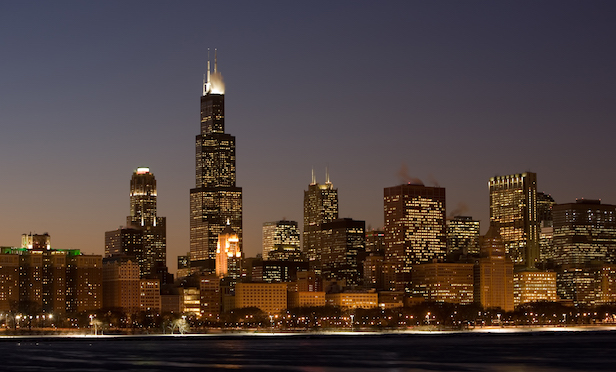
NEW YORK CITY—Post-Global Financial Crisis pricing recovery has been good for Manhattan, but not for Chicago and Washington, DC. That's the conclusion to be drawn from Real Capital Analytics' market indices, which also show Tokyo and Amsterdam lagging other major global destinations in pricing gains for office, retail and industrial assets.
RCA's Global Cities Composite, comprising 27 of the most important investment markets, shows that pricing in the second quarter was 36.1% above pre-GFC levels a decade earlier. Aside from Amsterdam, Chicago, Tokyo and Washington, pricing in the other cities has fully recovered and gone on to set new records. Hong Kong prices have tripled since the prior peak of 2007, while in Manhattan and London's West End they have nearly doubled.
“Gateway cities are clear winners in the ultra-low interest rate environment that has prevailed since the GFC, outperforming their national markets as investors have favored core, city center properties in the most globally connected markets,” says Robert White, RCA's president and founder.
Local economic challenges and oversupply generally explain why the four exceptions to the index's growth story haven't followed the general trends. However, in the near term RCA's CPPIs are showing a change in trends, and cities such as Amsterdam and Chicago have started to gain momentum as price appreciation in the most heated markets begins to normalize.
On a year-over-year basis, for example, Chicago prices have risen 8%, comparable with gains seen in markets such as Paris. The strongest Y-O-Y appreciation among these global markets was registered by Boston, where prices were up 23% from the year-ago period at the end of Q2.
Overall, the Global Cities Composite rose 8.3% in Q2 from a year earlier, led by strong gains in Boston, Hong Kong, Melbourne and the German A cities of Berlin, Cologne, Dresden, Dusseldorf, Hamburg, Munich and Stuttgart. In London's West End, the price gains were 0.2% from a year earlier. RCA's transaction volume data show that investment in Manhattan fell 50% Y-O-Y to $17.6 billion in Q2, while in the West End of London the 12-month decline in transaction volumes was 17% to $7.8 billion.
Manhattan and London's West End district have underperformed in relative terms recently reflecting investors' concerns about deploying capital in these markets at this late stage in the investment cycle, according to RCA. For London, the situation has been compounded by the uncertainty following the UK referendum in June 2016 to leave the European Union
Want to continue reading?
Become a Free ALM Digital Reader.
Once you are an ALM Digital Member, you’ll receive:
- Breaking commercial real estate news and analysis, on-site and via our newsletters and custom alerts
- Educational webcasts, white papers, and ebooks from industry thought leaders
- Critical coverage of the property casualty insurance and financial advisory markets on our other ALM sites, PropertyCasualty360 and ThinkAdvisor
Already have an account? Sign In Now
*May exclude premium content© 2025 ALM Global, LLC, All Rights Reserved. Request academic re-use from www.copyright.com. All other uses, submit a request to [email protected]. For more information visit Asset & Logo Licensing.








